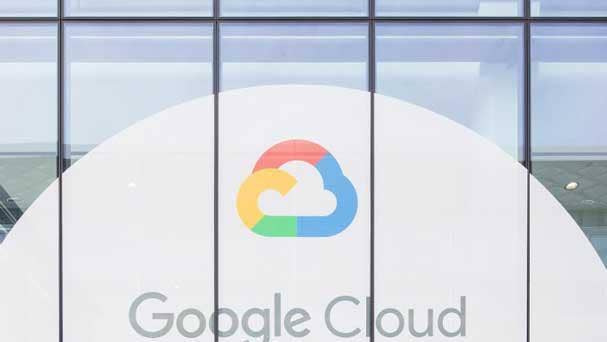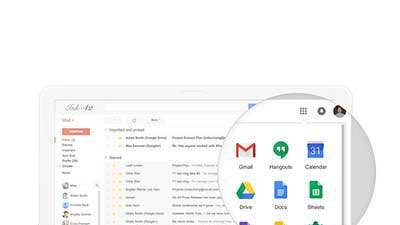Thomas Kurian: Why Google Cloud Bests AWS, Azure For Partners
Google Cloud CEO Thomas Kurian talks to CRN about the advantages the company has over its two main cloud rivals, Amazon Web Services and Microsoft Azure.

Google Cloud CEO Thomas Kurian is striving to capture more channel partner mindshare to take his fast-growing cloud company to the next level—dedicating to attach partners to 100 percent of all customer accounts.
In an interview with CRN, Kurian discusses why Mountain View, Calif.-based Google Cloud is a better choice for solution providers compared to its main rivals Amazon Web Services and Microsoft Azure.
“We have technology that uniquely makes it possible for a customer to build and run applications across multiple clouds,” said Kurian, who took over the reins at Google Cloud in late 2018 after a 22-year stint at Oracle.
Annual customer spending through channel partners and the Google Cloud Platform “more than doubled” from 2020 to 2021, according to Kurian. “We are seeing really unprecedented demand from customers, and our partners are critical to meeting this demand,” he said.
Google Cloud’s channel partners are playing an ever-increasing crucial role in growing the company at break-neck speed.
The company was generating $5.8 billion in revenue in 2018. When Kurian stepped into the role of CEO, channel partners became the tip of the spear in Google Cloud’s go-to-market strategy.
Google Cloud annual sales have now grown from $5.8 billion in 2018 to over $19 billion in 2021. The company generated $5.82 billion in cloud sales for its most recent first quarter 2022, representing a 44 percent increase year over year.
Kurian touts partners as the leaders in driving cloud services sales for the company, not Google Cloud itself, which is another differentiator for the channel compared to other cloud competitors.
“When I joined, I was very clear that we are our products and solutions company, we’re not a services company. So there is zero channel conflict,” Google Cloud’s CEO said. “So it makes it much easier for a partner to know when you go in with Google, they’re not going to try and bring their own services and compete with us.”
In an interview with CRN, Kurian discusses why partners should pick Google Cloud over cloud competitors AWS and Azure.

Partners are always thinking, ‘Who do I lead with?’ Microsoft engages with partners in other ways like with its Office Suite, while AWS was very early to the game in on-boarding the channel. What’s the pitch to partners as to why they should bring Google Cloud to their customers?
We’ve not only shown that we are a new player in cloud computing, but it’s shown through our results that we are successful. So partners need to know, first of all, that all the success we’ve had to date would not have come without partners helping us. And the partners that have helped us have done astonishingly well in building large, large businesses alongside Google.
Now, why should partners work with us? What cloud computing is about now is vastly different than what it used to be about. When you talked to customers three years ago, most customers said, ‘I’m going to pick a primary cloud vendor.’ Today, when you talk to large enterprises, everyone says, ‘I’m going to work with at least two or three cloud providers.’ So this notion of using multiple clouds becomes a big deal. We have technology that uniquely makes it possible for a customer to build and run applications across multiple clouds. Large companies are using that, and many of our partners have actually helped us with that.
Second example, when we look at analytics and data, Google is uniquely positioned because we offer a capability that others don’t: the ability to work and do analysis when your data is in multiple clouds. When your data happens to be structured and unstructured data, we can still let you do analysis. Our data business is growing extremely quickly as a result. So if you look at the work we’ve done with Lush, which is a cosmetics and consumer products company, two of our partners in Europe—Ancoris and Clarinet—we help them move to Google Cloud to provide them not only high performance e-commerce infrastructure, but also great customer analytics and understanding. Same thing, if you look at an example from [beer brewing company] Anheuser-Busch InBev. They wanted to really optimize how they do large-scale manufacturing data analysis on their manufacturing floor. Our partner, Pluto7, worked with us to build that solution for Anheuser-Busch. So the second segment that we see a lot of interest in is around analytics and data. Similarly, we have a lot of interest in our collaboration tools and cybersecurity solutions.
Another reason is, when I joined [Google Cloud] I was very clear that we are a products and solutions company, we’re not a services company. So there is zero channel conflict—zero channel conflict. So it makes it much easier for a partner to know when you go in with Google, ‘they’re not going to try and bring their own services and compete with us.’ … We reward partners both for the initial up-front sell as well as any ongoing sales that they do with our customer base.

Why do you think Google Cloud is a better answer for channel partners compared with selling an AWS or Azure cloud solution?
We’re seeing really unprecedented demand from customers, and our partners are critical to meeting this demand. Just as an example, between 2020 and 2021 full-year comparison, customer spend through channel partners and Google Cloud Platform more than doubled. The number of customers spending more than $1 million per year in our marketplace, which is the place where we bring partners and place them in front of customers to make it easy for customers to access them, that increased by six times.
Our goal is to attach partners to 100 percent of our customer engagements. So the nature of cloud is it’s a platform business. In a platform business, you want to enable the partner ecosystem to deliver solutions to work with clients to bring them to our cloud. Our difference is that we’re very committed to the partner ecosystem. We’re giving them not only great and differentiated technology, but also facilitating them in terms of aiding and building solutions and sharing the growth that we have with them.

What do you mean by attaching partners to 100 percent of customer engagements?
Our product portfolio consists of several segments. There’s infrastructure, where people are looking to migrate their data centers, modernize their application portfolio and optimize the way that they are building new applications.
Then there’s analytics and data, where people are migrating their existing datasets into the cloud to look at, for example, how do they serve customers better? What do they do for supply chain optimization? What do they do for product recommendations? Depending on the industry, they’re very specific scenarios. Security is a third one. We have a lot of customers using our cybersecurity offerings, whether that is to implement a more secure environment for their own company using something called zero-trust security or whether it’s implementing our analytics tools to identify whether they have been compromised or to address threats.
There’s opportunities for partners just in these three examples. If you’re a specialist partner who has expertise in SAP, for example, we need partners to help migrate SAP workloads to our cloud. When we do cybersecurity, we have a large network of managed security service providers who bring their expertise in operating secure environments to customers and help them use our technology to deliver cybersecurity. So our goal—whether it’s in data, infrastructure, collaboration tools, etc.—our goal is to get to 100 percent attach with every client with a partner.

How secure should I feel as a Google partner? Am I more secure with you than I am with AWS or Microsoft? What’s your advantage in cybersecurity?
So I’m sure you use Google’s consumer services: Google Search, Google Maps, etc. Those services are very largescale services and are used by billions of people around the world. You would probably notice they have never been brought down, and you’re able to access them all the time. It’s because of a lot of security tools and operational solutions that we have built over the years to protect our own services. Now, we’re making those solutions available to our cloud customers.
There are three or four examples. The first one, how does a customer use the cloud securely so that they don’t get compromised in the use of the cloud? We have something called BeyondCorp, which is a solution that protects customer applications running in the cloud.
The second one, when a customer uses the cloud, how do you make sure that their data does not get compromised or exfiltrated? We have solutions to encrypt data, to keep data secure, to ensure there’s no leakage of data, etc. So there’s a comprehensive set of data protection solutions.
A third one, we allow customers to run and protect not just their workloads that run in our cloud but also in their enterprise. For example, if they have systems that run in their own data centers, we have a set of solutions that do that as well. We complement these because security is a huge space. So we do some things particularly well, and we complement this with a set of partners—Palo Alto Networks, CrowdStrike, Cybereason, Splunk, etc. Depending on the segment that we’re focused on and the type of security they need, we bring in the partner ecosystem. And as a result, you can look publicly at the threat data and the reports on breaches—we have a very secure cloud approach that we are confident in.
We offer cyber insurance, so a customer can buy cyber insurance when they run workloads on [Google Cloud] and get great rates because they’re running on a secure infrastructure. We’re very confident, and partners who work with us attest that our cloud is a very secure-by-design cloud so they can be confident that when they run their applications on the cloud, their own solutions can be protected using the capabilities that we offer.

How much co-selling is there between Google Cloud partners and your direct sales force?
One point that is super important for people to realize: In the cloud business, there is no such thing as a sale and the end of it. Right? When we go to a greenfield account which has never done business with us, the first conversation is to convince the customer that we have a solution that really works well. The customer then says, ‘Great, I’ll get a cloud agreement signed with Google.’ And they start the first project. But the job of selling doesn’t end there. Because there are more divisions, more departments, more projects, etc., so the job of selling is a continuous one in this cloud business.
Now, the way that we work with partners is to facilitate both elements. When we work with partners in greenfield accounts, we’ve given them very clear territories that they can pursue without any involvement from a Google sales rep because some partners in a greenfield environment prefer to go directly to the customer, and we give them that ability. We’ve been very clear where our sales teams play and where [partners] play. So it allows them to access the greenfield base, even in that customer base that I mentioned that we’ve already won, where we’ve got people actually doing projects with us—we bring partners in.
Because our sales team may find the first five workloads, but there may be another 10. And we want the partners to go capture that. So in the cloud business, there is no ‘you sold and then you leave.’ It’s always selling. So by working with partners in both greenfield and in existing accounts, we’re trying to give partners the broadest possible access to our customer base.